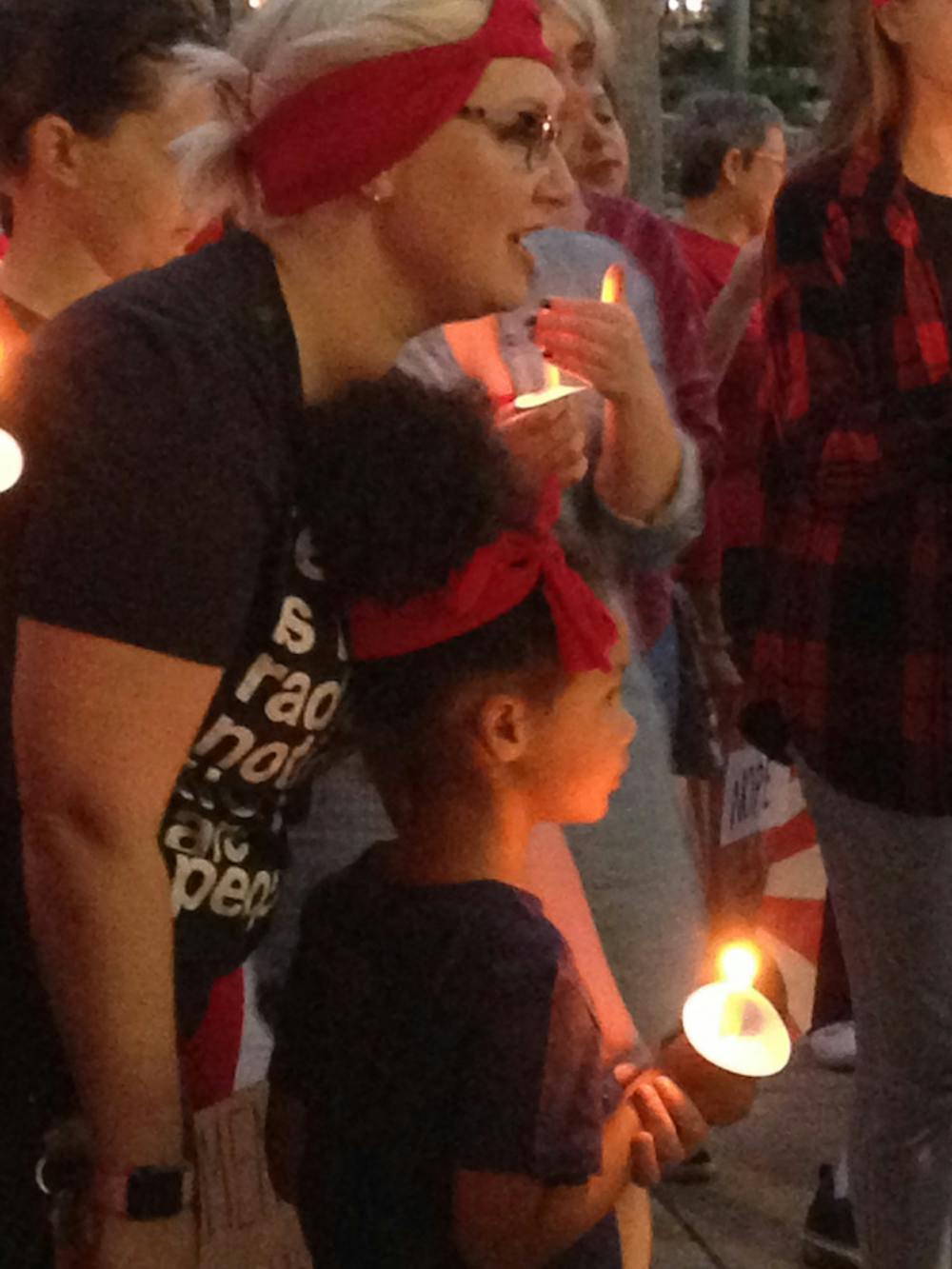On the edge of UF’s campus Wednesday afternoon, a protester asked a group of about 50 how far the U.S. has progressed toward gender equality since the 1970s.
“Not far enough,” the group chanted.
The protesters, standing on the corner of Southwest 13th Street and University Avenue, were participating in the International Women’s Strike, held on International Women’s Day. Protesters encouraged Gainesville women to strike from their labor, both paid and unpaid, to stand against sexism and emphasize the importance of women in the workplace.
People of all genders wore red — a color symbolic of revolution, action and love — while waving signs promoting feminism and criticizing President Donald Trump at passing drivers. One read, “Sisterhood is powerful,” while another read, “Twinkle twinkle little czar, Putin put U where U are.”
While some women took the day off from jobs, others refrained from the unpaid labor of child care and household chores, said Hizel Levy, an organizer from the Gainesville chapter of the National Women’s Liberation, a feminist group that organized the local strike.
“We raise our class consciousness,” Levy said. “We understand more about our oppression. So there’s political education that’s involved in calling a strike.”
As of Tuesday, more than 30,000 people registered their intent to participate in national strikes, according to The New York Times. Strikes also happened globally in places like Rome, Italy, and Seoul, South Korea.
In Gainesville, about 10 women took turns speaking into a megaphone and sharing their experiences with gender discrimination and oppression in the U.S.
Nicole Long, a UF ecology graduate student and research assistant, told the crowd her boyfriend, another UF graduate student and research assistant, makes 30-percent more money than she does. She said the other speakers helped make the strike meaningful.
“Without those courageous women, there’s not going to be the exposure,” the 27-year-old said.
Jessie-Leigh Seago, a UF political science doctoral student, spoke to protesters about how women are brought up in a patriarchal system, and those with privilege need to strike for those who cannot afford to miss paid work.
“I’m here because I’m fortunate enough that I can be,” the 28-year-old said.
Seago and Long said they saw a construction worker across the street mocking the protest by holding a cardboard sign reading, “Make America grab p----,” and lewdly thrusting toward the women while wearing a Trump hat. The construction worker, employed under Landmark Properties, which is building The Standard at Gainesville at the corner of Southwest 13th Street and University Avenue, declined to comment.
Seago said she’s been sexaully harassed at protests before, and the worker’s action demonstrated a need for public activism.
“I think it’s insulting to women,” she said. “It also gives us a reason to be here.”
After the speak-outs, protesters marched to Gainesville City Hall, where a candlelight vigil was hosted by the Gainesville-Ocala chapter of the Women’s March on Washington.
At the vigil, the crowd sang MILCK’s song “Quiet,” which protesters have used as an anthem during national Women’s Marches. Organizers encouraged protesters to dedicate the evening to a powerful woman in their life.
Levy said the strike made women in Gainesville feel connected to the larger movement.
“We can have a collective power,” she said. “It gives us a chance to define who we are and feel our power.”
Joy Pitts, 35, brought her 5-year-old daughter, Olivia, to the candlelight vigil held Wednesday at Gainesville City Hall for International Women’s Day. “This is why I do everything I do; I do it for her,” Pitts said.






